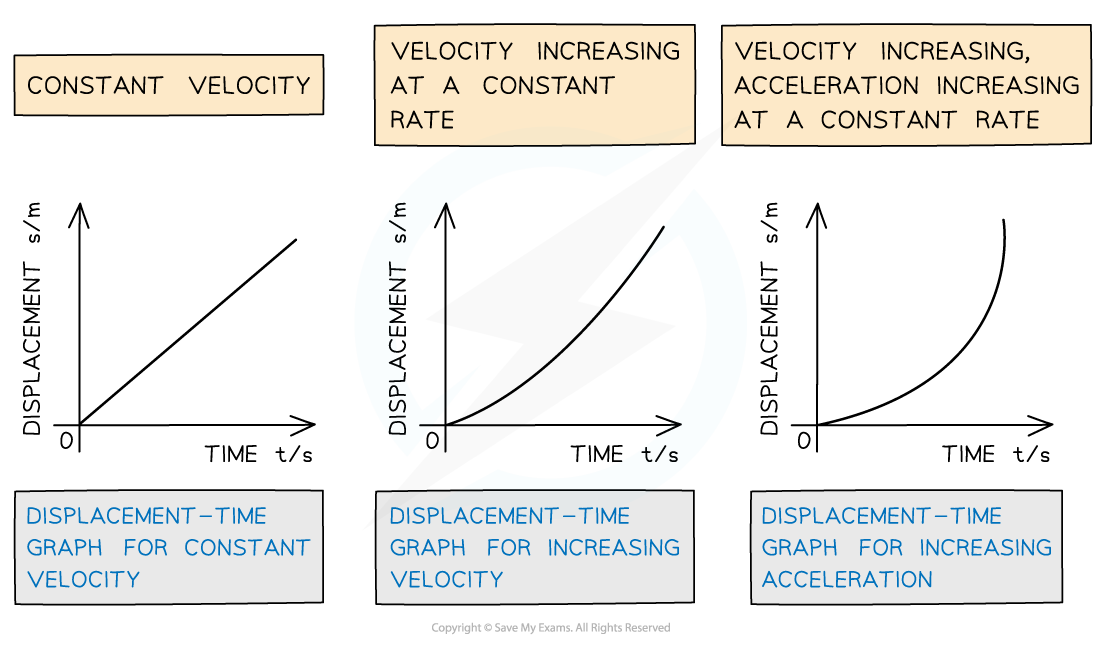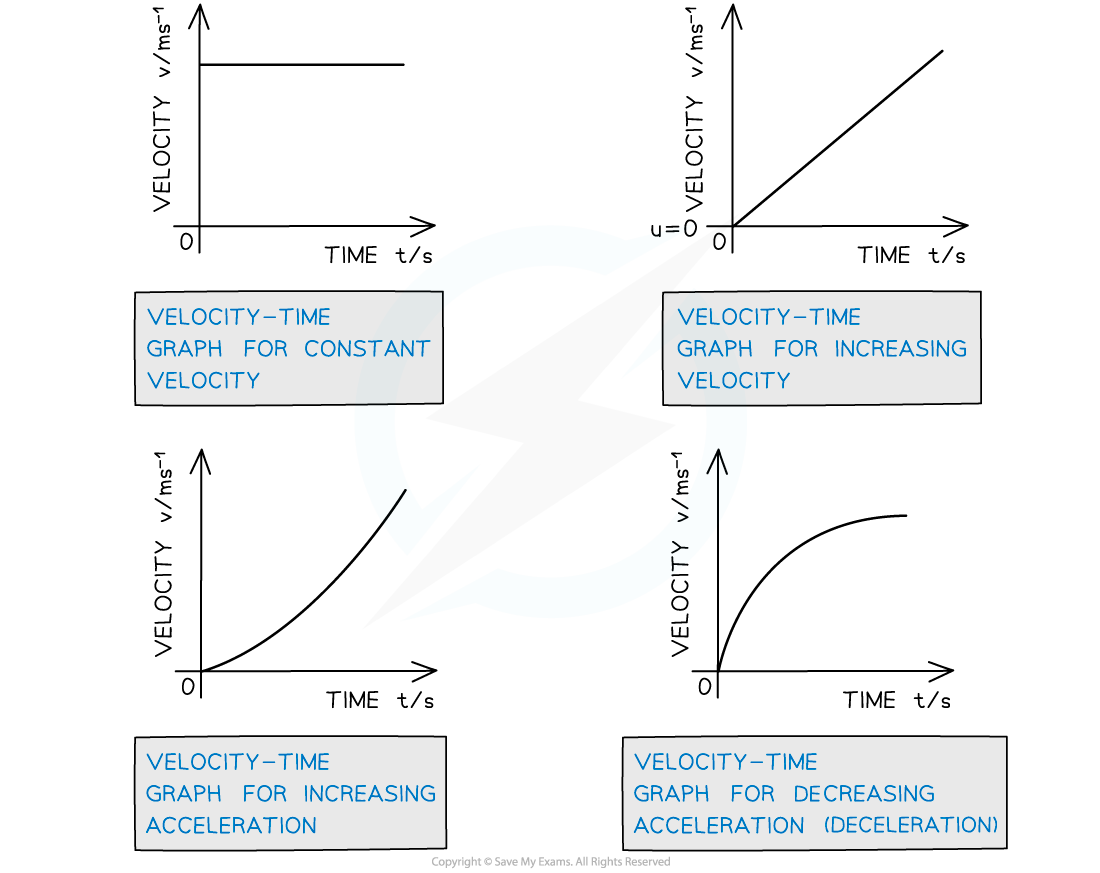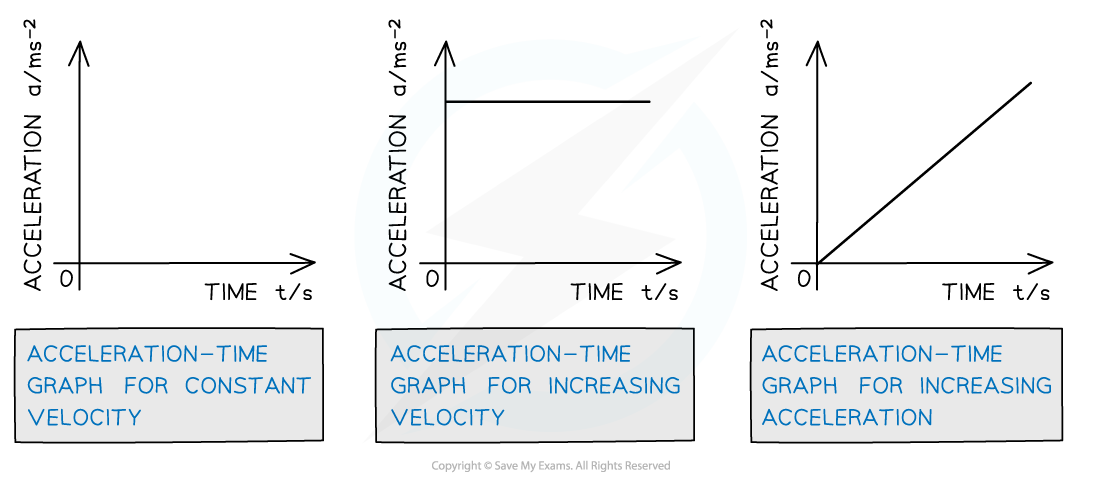Motion Graphs (OCR AS Physics) : Revision Note
Motion Graphs
Three types of graph that can represent motion are displacement-time graphs, velocity-time graphs and acceleration-time graphs
Displacement-Time Graph
On a displacement-time graph:
The gradient (or slope) equals velocity
The y-intercept equals the initial displacement
A diagonal straight line represents a constant velocity
A positive slope represents motion in the positive direction
A negative slope represents motion in the negative direction
A curved line represents an acceleration
A horizontal line (zero slope) represents a state of rest
The area under the curve is meaningless
Remember the displacement-time graph can have positive or negative values on the displacement axis. However, a distance-time graph only has positive

Displacement-time graph for different scenarios
Velocity-Time Graph
On a velocity-time graph:
Slope equals acceleration
The y-intercept equals the initial velocity
A straight line represents uniform acceleration
A positive slope represents an increase in velocity (acceleration) in the positive direction
A negative slope represents an increase in velocity (acceleration) in the negative direction
A curved line represents the non-uniform acceleration
A horizontal line (zero slope) represents motion with constant velocity
The area under the curve equals the displacement or distance travelled
Remember the velocity-time graph can have positive or negative values on the displacement axis. However, a speed-time graph only has positive

Velocity-time graph for different scenarios
Acceleration-Time Graph
On an acceleration-time graph:
The slope is meaningless
The y-intercept equals the initial acceleration
A horizontal line (zero slope) represents an object undergoing constant acceleration
The area under the curve equals the change in velocity

Acceleration-time graphs for different velocity scenarios

You've read 0 of your 5 free revision notes this week
Unlock more, it's free!
Did this page help you?
